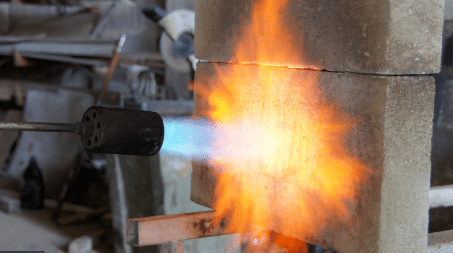Why Concrete Is Considered To Be Fire Resistant In Imperial Beach?

Low Combustibility Rating
It has low combustibility, meaning it is not easily ignited and does not readily support combustion.
Non-Combustible Material
Concrete is made up of non-combustible materials, such as cement, sand, gravel, and water. This means that it will not catch fire or burn if exposed to flames or high temperatures.
High Thermal Mass
Concrete has a high thermal mass, meaning it can absorb and store heat energy. This makes it resistant to fire as the heat is absorbed and stored rather than being conducted through the material.
Slow Rate Of Heat Transfer
Concrete has a slow rate of heat transfer, meaning that it takes longer for heat to travel through the material. This helps to insulate the material and prevent it from catching fire.
Fire-Resistant Curing Agents
Cement, one of the main ingredients in concrete, is usually cured with water. However, there are also fire-resistant curing agents that can be used, such as calcium hydroxide or magnesium oxide. This helps to further improve the fire resistance of concrete.
Protective Coating
Concrete can be given a protective coating, such as paint or sealant, which helps to improve its fire resistance.
Additives
There are various additives that can be added to concrete to improve its fire resistance, such as fiber reinforcement, alumina trihydrate, or silicon carbide.
Moisture Content
Concrete that has a higher moisture content is more fire resistant than dry concrete. This is because the water helps to absorb heat and prevent the material from reaching its ignition point.
Reinforcement
Reinforcing concrete with steel or other materials helps to improve its fire resistance as it prevents cracking and spalling under high temperatures.
Compaction
Compacting concrete helps to remove voids and air pockets, which can act as fuel for a fire. This increases the density of the material and makes it more fire resistant.
Thickness
Thicker concrete is more fire resistant than thinner concrete as it takes longer for heat to travel through the thicker layer.
Mass
Heavier concrete is more fire resistant than lighter concrete as it has a higher thermal mass and is less likely to be damaged by heat.
Color
Concrete that is darker in color is more fire resistant than lighter colored concrete as it absorbs more heat.
Protection During Construction
During construction, concrete can be protected from fire with various methods, such as fireproofing, water sprinklers, or foam extinguishers.
Conclusion
As seen, concrete has many properties that make it fire resistant. When used in construction, it can help to protect a building from fire damage. It is important to note that no material is completely fireproof, but concrete comes close. For more information, contact Concrete Contractor Imperial Beach at (619) 414-1918.